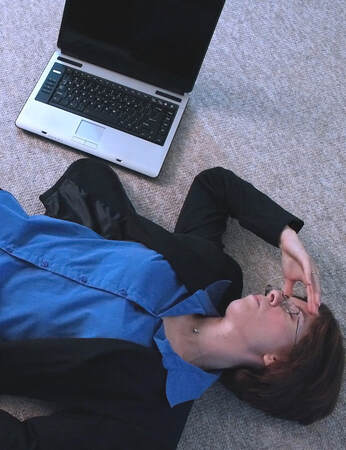As teachers, we have a choice in the way we approach the complexities of our transition to socially distant or virtual education. We can view this transition as an insurmountable obstacle or as a problem with viable solutions. We have a critical decision to make. Over the past six months, educators around the world have chosen to seek and create solutions. We actively engage in professional development (including hundreds of teachers who have completed coursework with me at Moreland University) to seek expert guidance, collaborate with colleagues, gather tools and resources, and develop materials to effectively transition to the socially distant or online classroom. We have found workable solutions by engaging with our local and global professional learning communities, tapping into our colleagues’ experience and knowledge.
The common thread in my reading and work with teachers who are searching for effective ways to teach in this new environment is not any single solution or tool. Rather, the key to success appears to be teachers’ willingness to engage in creative problem solving. I have found insight and inspiration from Angela Duckworth in her book Grit where she writes about the power of passion and perseverance in finding purpose and achieving success. A quote that struck me is, “When you keep searching for ways to change your situation for the better, you stand a chance of finding them. When you stop searching, assuming they can’t be found, you guarantee they won’t” (page 177). Teachers who choose to approach the 2020-21 school year with optimism and grit will find more professional satisfaction, teach more effectively, and help students achieve and perform at higher levels. As we strive to tackle these issues and creatively find solutions, we must also prioritize our physical and mental health. Teachers need to engage in personal mindfulness practices and self-compassion in order to foster social-emotional wellbeing. The Collaborative for Academic, Social, and Emotional Learning proposes that teachers need opportunities to, “…connect, heal, and build their capacity to support students.” Self-criticism and feelings of inadequacy among teachers contribute to a fear of failure. Fear of failure can deeply impact our ability to leverage creativity in response to the demands of teaching and learning in the 2020-21 school year and beyond. Rather, self-compassion and mindfulness are manifested through affirmative self-talk, meditation, reflection, and even physical exercise. These mindfulness habits lead to a reflective teaching practice which seeks to creatively respond to students’ needs in any learning environment. With compassion for ourselves and others, teachers are more capable of uncovering creative means to engage students and promote student achievement wherever learning may take place. The underlying belief that ties together these compassionate and solution-oriented practices and mindsets—the theme or thesis, if you will—is that we are capable. Carol Dweck is an esteemed researcher and educator whose work on growth mindset has influenced my personal philosophy of education. She has demonstrated through numerous studies that, “Individuals who believe their talents can be developed (through hard work, good strategies, and input from others) have a growth mindset. They tend to achieve more than those with a more fixed mindset (those who believe their talents are innate gifts).” This quote helped me realize that a combination of creative problem-solving and perseverance can help teachers develop a growth mindset that frees us from the fear of failure. When we approach the challenges of education in the era of COVID-19 with optimism and a belief in our ability to grow, teachers develop innovative and responsive practices. So let’s embrace this school year as a period of learning and growth! The 2020-21 school year will undoubtedly bring considerable challenges and failures, but it will also be a year of incredible achievement and ingenuity for students and teachers. Teachers’ mindsets matter, and anything is possible when we leverage perseverance and compassion. (This post can also be found at the Moreland University blog by clicking here.) Joseph A. Pearson, M.S.Ed.
2 Comments
Dan Danner
11/17/2020 12:45:38 pm
Excellent topic.
Reply
Are your thoughts secretly sabotaging your happiness and success? In a world where negativity can run rampant, it's time to uncover the profound influence of Automatic Negative Thoughts (ANTs) on both individual lives and the broader societal landscape. Buckle up as we delve into the fascinating realm where psychology meets society. Join us on a journey of self-discovery and societal exploration as we unravel the intricate web of automatic negativity and its far-reaching consequences. Get ready to challenge your perceptions and ignite a transformation within yourself and the world around you.
Reply
Leave a Reply. |
Currently ReadingAs I work toward developing the perseverance and drive to achieve my goals, I am reading Grit by Angela Duckworth. My biggest learning so far has been the importance of identifying and defining my inner compass, "...the thing that takes you some time to build, tinnier with, and finally get right, and then that guides you on your long and winding road to where, ultimately, you want to be" (p. 60). I use this compass to set goals, plan my daily actions, and reflect. Archives
October 2020
Categories |

 RSS Feed
RSS Feed